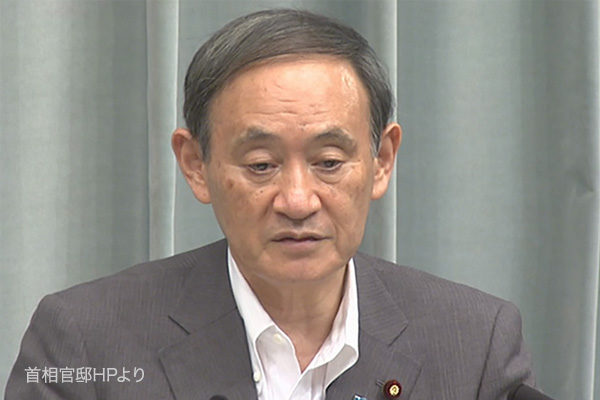Chief Cabinet Secretary Yoshihide Suga is expected to win a clear victory in the ruling Liberal-Democratic Party’s presidential election on September 14 following Prime Minister Shinzo Abe’s resignation. I would like a Suga administration not only to prevent the spread of novel coronavirus and promote economic recovery but also to play a bigger role in supporting free and liberal international order while keeping the Japan-U.S. alliance as its core at a time when the United States is increasingly poised to address Chinese threats.
Remove Nikai’s influence
LDP Secretary General Toshihiro Nikai took initiative in creating a tide for Suga’s victory. Nikai successfully demonstrated his influence as a veteran politician and is expected to retain the current LDP post. Meanwhile, Nikai is known for flattering China by bringing thousands of people to Beijing for a meeting with Chinese President Xi Jinping. The Chinese are only temporarily smiling at Japan. Beijing’s tough stance against Japan has been demonstrated by Chinese government ships’ almost daily intrusion into waters around Japan’s Senkaku Islands. Suga, as Chief Cabinet Secretary, has reiterated that he takes the Chinese action very seriously, recognizing a critical situation.
In his policy platform for the LDP presidential election, Suga vows to “defend national interests.” “At a time when the national security environment surrounding Japan is growing severer, I would like to develop foreign and security policy based on a working Japan-U.S. alliance,” he says. Suga also emphasizes that he would “strategically promote the free, open Indo-Pacific” advocated by outgoing Prime Minister Abe. At the same time, he offers to “build stable relations with China and other neighbors.” While good relations with neighbors are desirable, a Suga administration should urgently promote oceanographic surveys around the Senkakus and other measures to enhance its effective control on the islands and defend the Japanese territory even in defiance of possible resistance from Nikai and other pro-China politicians. Oral complaints alone against the Chinese action cannot work.
The Chinese Communist Party regime has abused human rights in the Xinjiang Uygur Autonomous Region, Tibet, Hong Kong and the Inner Mongolia Autonomous Region. Japan cannot ignore such abuse. The government should officially cancel Chinese President Xi’s state visit to Japan, which has been postponed since last spring due to the novel coronavirus outbreak.
Abduction issue, constitutional amendments should be on top of agenda
A Suga administration should give priority to the resolution of North Korea’s abduction of Japanese citizens and constitutional amendments that Prime Minister Abe has failed to accomplish. Suga has engaged with North Korean issues since he was first elected to the House of Representatives. When serving his second lower house term, he led a legislative initiative to ban the entry into Japan of the Man Gyong Bong 92, a North Korean cargo-passenger ferry alleged to have been used for illegal remittance from Japan and intelligence operations including instructions to spy agents in Japan. While beefing up pressure on North Korea, Suga should take an opportunity to hold talks with Pyongyang and seek to resolve the abduction issue.
Suga, though hardly a vocal champion of constitutional amendment, has deep connection with the LDP’s coalition partner Komeito Party and its power base Soka Gakkai, a Buddhist organization, which are cautious about the amendment. The amendment was Abe’s earnest desire he couldn’t accomplish. I hope Suga would come into his own by breaking through the deadlock however difficult it might be.
Takashi Arimoto is publisher of Monthly Magazine SEIRON at the Sankei Shimbun newspaper.


